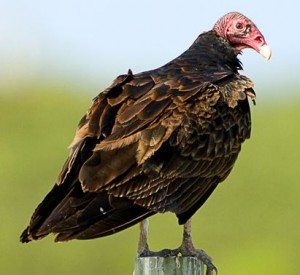 An analysis of data on stomach acidity and diet in birds and mammals suggests that high levels of stomach acidity developed not to help animals break down food, but to defend animals against food poisoning. The work raises interesting questions about the evolution of stomach acidity in humans, and how modern life may be affecting both our stomach acidity and the microbial communities that live in our guts. The research team – including scientists from Washington University and the University of Colorado, Boulder – examined all of the existing literature on stomach acidity in birds and mammals, and found data on 68 species. They then collected data on the natural feeding habits of each species. The researchers then ran an analysis to see how feeding behavior was related to stomach acidity. “The finding confirms our hypothesis, but you have to get that confirmation before moving forward,” Beasley says. “The next step will be for scientists to examine the microbial ecosystems in the guts of these animals to see how these ecosystems have evolved. Do animals with high stomach acidity have smaller or less diverse populations of gut microbes? Or do they simply host microbes that can survive in acidic environments?”
An analysis of data on stomach acidity and diet in birds and mammals suggests that high levels of stomach acidity developed not to help animals break down food, but to defend animals against food poisoning. The work raises interesting questions about the evolution of stomach acidity in humans, and how modern life may be affecting both our stomach acidity and the microbial communities that live in our guts. The research team – including scientists from Washington University and the University of Colorado, Boulder – examined all of the existing literature on stomach acidity in birds and mammals, and found data on 68 species. They then collected data on the natural feeding habits of each species. The researchers then ran an analysis to see how feeding behavior was related to stomach acidity. “The finding confirms our hypothesis, but you have to get that confirmation before moving forward,” Beasley says. “The next step will be for scientists to examine the microbial ecosystems in the guts of these animals to see how these ecosystems have evolved. Do animals with high stomach acidity have smaller or less diverse populations of gut microbes? Or do they simply host microbes that can survive in acidic environments?”


